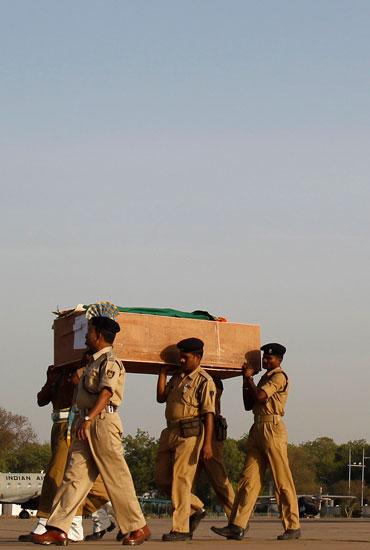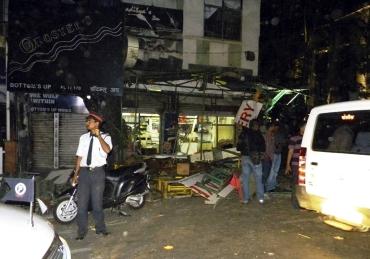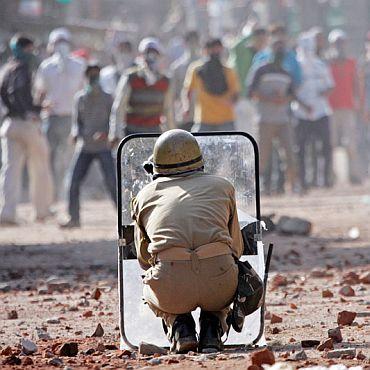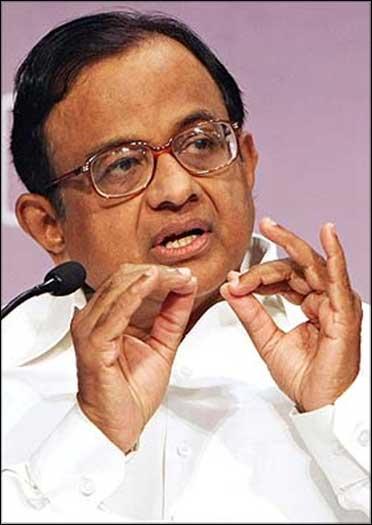The worst-ever attack on a police force by Maoists, the blast in Pune at the beginning of the year and the Varanasi explosion at the end of the year blotted the copybook of the security forces, which otherwise kept 2010 free from terror.
The outgoing year also saw India getting access to Pakistani-American terrorist David Headley while Home Secretary Gopal K Pillai landed in a controversy over his statement on Pakistan's cooperation with India on terror ahead of failed Indo-Pak dialogue in Islamabad.
The summer turmoil in Kashmir Valley kept the security establishment on its toes as the Centre appointed interlocutors as part of efforts to find a solution to the Kashmir problem.
The separate Telangana issue that came to the fore last year-end again threatens to rake its head in the near future with the Srikrishna Committee set to give its report by December 31, presenting a tough challenge for the government to take a call on the issue.
The German bakery blast shattered a period of relative calm
Image: The facade of the German Bakery after the blastPosing the biggest internal security challenge, the Maoists violence continued unabated in Naxal dominated states.
In an audacious attack in Chhattisgarh's Dantewada, the Maoists killed 75 Central Reserve Police Force personnel which led to Home Minister P Chidambaram offering to quit his post. However, it was rejected by Prime Minister Manmohan Singh.
The security forces are engaging Naxalites in the areas dominated by them with a view to re-establishing the authority of the civilian government.
A relatively peaceful 14-month period after the November 26, 2008 terror attack in Mumbai was rudely interrupted by a bomb blast in Pune's German Bakery on February 13, suspected to be carried out by the Indian Mujahideen, that resulted in 17 deaths.
As the year approached its end, the Indian Mujahideen targeted the temple town Varanasi on December 7 by setting off a blast that killed two persons, including a two-year old girl.
The attack led to a sparring between the Centre and the Uttar Pradesh government. Home Minister Chidambaram said there was a specific advisory given on the possibility of a strike in one of the Ganga ghats but the state government contested its utility.
Stone pelters in Kashmir grabbed the headlines
Image: A policeman takes cover as a mob pelts stones in SrinagarDuring the summer, Jammu and Kashmir witnessed a revival of stone-pelting and attacks on security forces. The violence resulted in the killing of around 100 people in the Valley.
A prolonged tension was brought under control following an all-party meeting convened by Prime Minister Manmohan Singh in Delhi, a visit by an all-party delegation to Jammu and Kashmir and the announcement of an 8-point plan for the state. The appointment of a three-member team of interlocutors to hold sustained dialogue with all sections of people followed the Centre's proactive measures.
India got access to David Coleman Headley, who did the recce of the targets of November 26, 2008 terrorist attack on Mumbai and currently is in the custody of America authorities, and received a broad picture about the worst terrorist attack in the country, its key actors and involvement of Pakistani official machinery.
Chidambaram had visited Pakistan in June, the first Indian Home Minister to visit that country in three decades, and pressed with his Pakistani counterpart Rehman Malik for urgent action against JuD chief Hafiz Saeed and 26/11 handlers, including those who are believed to be in the Pakistani Army.
However, six months down the line, there has not been any visible action on the part of Islamabad against the 26/11 accused nor any reply to India's request for the voice samples of the perpetrators who were giving directions to the ten terrorists who carried out the attack.
The CWG passed off without a scare
Image: Home Minister P ChidambaramThe communal situation remained under control. The judgement in the Ram Janmabhoomi-Babri Masjid title suits was delivered on September 30. The situation remained peaceful following the judgement.
The year saw successful hosting of the Commonwealth Games in New Delhi without any security scare.
During the year the Home Ministry took several measures to build the capacity to meet internal security challenges, obviously learning the lessons from the Mumbai attack.
The prime minister complimented Chidambaram for doing an "exceedingly good job" in the Home Ministry. The home minister and Home Secretary Gopal K Pillai even got rare compliments from opposition leaders, including Gujarat Chief Minister Narendra Modi who said "the response of the home secretary and home minister is swift and positive whenever there is a demand from the states".
The Census 2011 data collection for the National Population Register (NPR) was completed in all states and Union Territories except in a few villages of Chhattisgarh and West Bengal.





article